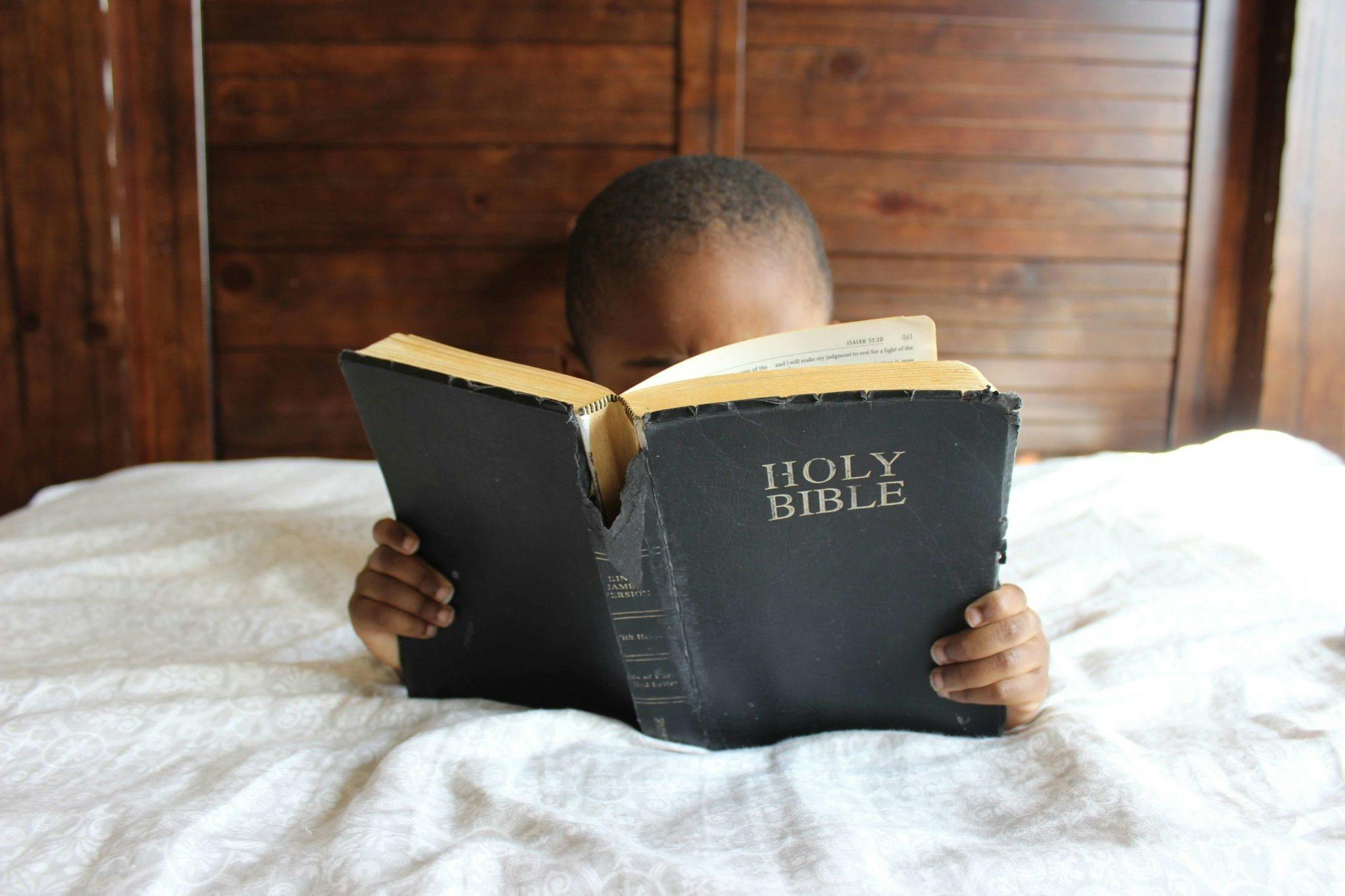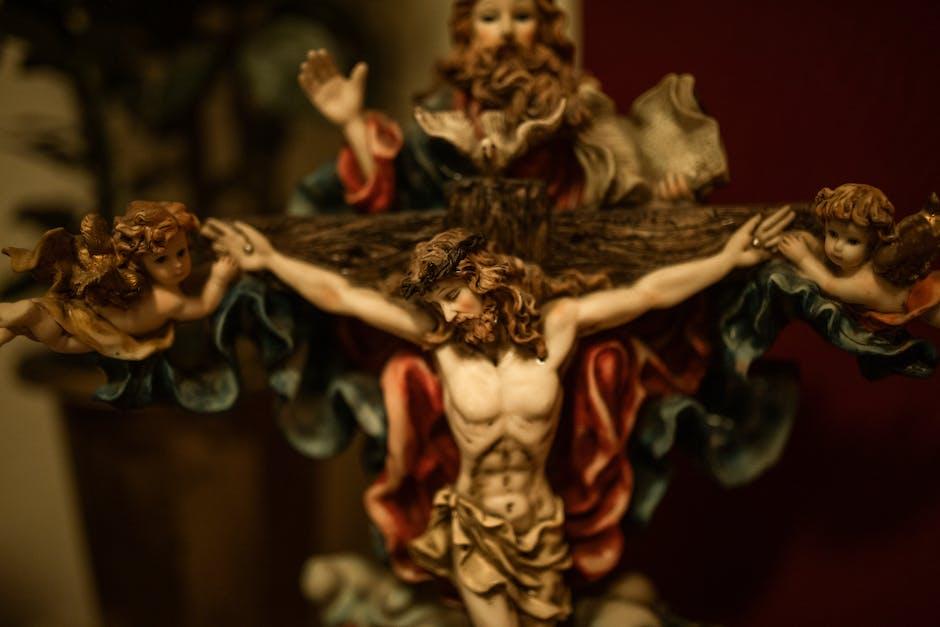The concept of a loving God who takes away innocent babies can be difficult to understand or accept. Many people ask why God would take away a baby that is so young and innocent. While it may be hard to comprehend, there are several explanations as to why this may happen. Some suggest that babies are taken by God because they are too pure and innocent for this world, while others believe it is part of a larger plan that is beyond our understanding. Ultimately, the answer as to why God takes babies will remain a mystery until we meet Him in Heaven one day.The Bible does not directly address the issue of God taking babies, but it does provide insight into God’s character and love for human life. In Psalm 139:13-14, it states, “For you created my inmost being; you knit me together in my mother’s womb. I praise you because I am fearfully and wonderfully made; your works are wonderful, I know that full well.” This passage emphasizes the value of every life, including those yet to be born. In addition, Jesus said in Luke 18:15–17 that “Let the little children come to me, and do not hinder them, for the kingdom of God belongs to such as these. Truly I tell you, anyone who will not receive the kingdom of God like a little child will never enter it.” This implies that even infants are part of God’s kingdom and thus are held in high regard by Him. Therefore, although the Bible does not provide a direct answer on this matter, it appears that God values all human life from conception onwards.
Is It God’s Will for Babies to Die?
The death of a baby is one of the most heartbreaking events that can occur in life. It can leave parents, family members, and friends feeling confused, angry, and devastated. Many people ask why this has happened and turn to faith to find answers. One question that is often asked is whether it is God’s will for babies to die.
The answer to this question depends on each person’s beliefs. Some may believe that God has predetermined the life span of each individual and therefore if a baby dies it was part of His plan. However, many believe that God does not cause suffering or death but instead allows it as part of His greater plan for humanity. They may also believe that babies who die are brought to heaven where they are cared for by angels and have a life free from suffering.
Regardless of one’s beliefs, it is important to remember that although the death of a baby can be heartbreaking, it does not mean that God does not care or has abandoned us in our time of need. He often works through us in times like these by providing comfort and strength when we need it most. It is also important to remember that although no one knows the full plan or purpose behind why a baby has died, we can still find peace in knowing that God loves us all and will ultimately bring good out of any tragedy we experience in life.
How Do People Respond to the Death of an Infant?
The death of an infant is one of the most devastating events a person can experience. The loss of a child – no matter how young – is heartbreaking, and it can be difficult to find the words to express the sorrow a family feels when their infant dies. Unfortunately, there is no one-size-fits-all reaction to the death of an infant, and people often cope with their grief in different ways.
Some people may choose to withdraw from family and friends, while others may need more support and turn to those close to them for comfort. Some may also benefit from professional counseling or support groups where they can share their stories and feelings with people who understand what they are going through.
No matter how someone chooses to cope with this tragedy, it is important for family and friends to be supportive as much as possible. This can involve being available for conversation, offering practical help or simply being present in silence. It is also important for those grieving not to rush themselves into “getting over” their loss; instead, they should be allowed time and space to grieve in whatever way works best for them.
On top of grief counseling, some families may also benefit from memorial services or other rituals that help them cope with the loss of their infant. Such rituals can offer a sense of closure and allow families to honor their baby’s memory in a meaningful way.
No matter how someone chooses to respond after the death of an infant, it is important that they have access to resources that can help them through this difficult time. With understanding and support from family and friends, those grieving can find hope in knowing that although life will never be the same again without their child, they are not alone in this journey towards healing.
What Can We Learn From a Child’s Death?
The death of a child is an incredibly difficult and heartbreaking event. It can be difficult to comprehend the tragedy and it can leave family, friends, and even strangers feeling helpless. But there is something to be learned from the death of a child.
Though it may be hard to take away something positive from such a tragedy, we can learn a lot about life, death, and what’s important in life. We can learn to appreciate the little moments we have with our loved ones, as life is precious and fleeting. We can also gain an understanding of how fragile life is and that it should not be taken for granted.
Grief is an important part of the healing process after a child’s death. Parents, siblings, friends, and family members all go through different types of grief in their own ways. It’s important to remember that everyone grieves differently and that there is no right or wrong way to do so.
It’s also important to remember that children are resilient and that they can still teach us lessons even after they have passed away. Children often bring out the best in us; their innocence reminds us to look at things with fresh eyes and see life through new perspectives. They remind us how important it is to cherish every moment with our loved ones as we never know when our time together will end.
By learning from the death of a child, we can become more compassionate towards others who are grieving or struggling with difficult situations in their lives. We should strive to use our newfound understanding of mortality for good by being kinder to one another and showing love for those around us while we still have time here on earth.
What Does it Mean to Trust God When a Baby Dies?
Trusting God when a beloved baby dies can be one of the most difficult things a person can experience. It’s natural to feel overwhelmed with grief and questioning why such tragedy has happened. In these moments, trusting God can be an incredibly difficult task. To trust God in this situation means that we have faith that He is in control of our lives and that He will bring good out of even the most tragic situations.
When it comes to trusting God in moments of tragedy, we must remember to focus on what we do know about Him rather than all the unknowns or questions that may arise. We know that He loves us deeply and profoundly and that He is good. We can take comfort in knowing that His plans for us are far greater than anything we could plan for ourselves.
It’s important to remember that trusting God isn’t about understanding why things have happened, but rather focusing on knowing who He is even when things don’t make sense. We may never fully understand why a baby died, but we can choose to trust in the character of an all-loving and all-knowing God who does have a plan for our lives despite our circumstances.
It’s also important to remember that trusting God doesn’t mean being immune from pain or grief. Even though we may choose to trust Him, it doesn’t mean our sorrow won’t exist or be validated. It simply means allowing ourselves the space to feel whatever emotions come up while also choosing to surrender those feelings into His hands and placing our faith in Him despite how challenging it may be at times.
Ultimately, trusting God when a baby dies means placing our faith in His sovereignty despite not understanding why these tragedies occur. It requires us to take comfort in knowing who He is and believing His promises even when life doesn’t make sense or feel fair.

When a Baby Dies
The death of a baby is one of the most heartbreaking losses imaginable. Unfortunately, it is a reality for many families. Losing a baby can leave family members and friends feeling overwhelmed with grief, confusion, and uncertainty. It is important to remember that each person experiences grief differently and at their own pace.
When faced with the death of a baby, it can be difficult to know how to respond. It is important to be supportive and understanding, but it can be hard to know what to say or do when words seem inadequate. Here are some tips for responding when a baby dies:
Listen Without Judgement
Offer your presence and support without judgement or expectations. Allow those who are grieving the space to process their emotions in their own way without trying to fix the situation or tell them how they should feel. Let them know that you are available if they want to talk and that you are here for them.
Show Compassion
Express your sympathy openly and remind them that they are not alone in this difficult time. Offer comfort through your words, gestures, or actions – like sending flowers or organizing meals for the family during this time of mourning.
Honor Their Child
It can be helpful for those grieving the loss of their baby to have tangible ways of remembering them – like writing letters, planting memorial gardens, making charitable donations in their name, or sharing stories about their child with friends and family members who did not get the chance to meet them.
Take Care Of Yourself
Grief can take its toll on both physical and mental health so make sure you take care of yourself during this difficult time as well. Schedule regular check-ins with close friends so you have someone to talk to about your own emotions while also providing support for those who need it most – like parents who have lost a child or siblings who have lost a brother or sister.
No matter what you do or say in response to the death of a baby, remember that no action is too small when someone is going through such an immense amount of pain and sorrow. Simply being there for someone during this time can make all the difference in helping them cope with such an unimaginable loss.
Is There Any Comfort in Losing an Infant?
Losing an infant is one of the most heartbreaking experiences a parent can face. The pain and grief that parents feel when they have to say goodbye to their beloved baby is immense and often overwhelming. Unfortunately, there is no easy way to cope with such a devastating loss. However, there are ways to find some comfort in the midst of this tragedy.
One way to find comfort is by sharing your feelings and memories with family and friends. It can be healing to talk about your baby and share stories about them with others who understand the deep sorrow you are going through. Additionally, many parents find solace in memorializing their baby through various activities such as creating a scrapbook or planting a tree in their memory.
It may also be helpful to seek out counseling or support groups where you can connect with people who have experienced similar losses. Talking with others who understand what you’re going through can help provide a sense of understanding, validation, and hope that life will eventually get better.
Finally, many people take comfort from their faith or religious beliefs during the grieving process. Praying or meditating on scripture can help provide strength and peace during this difficult time. Reaching out for spiritual guidance from trusted clergy members or mentors may also be beneficial as they can offer words of comfort and encouragement during this painful season of life.
Losing an infant is an incredibly difficult journey but it is possible to find some comfort along the way if you reach out for support from family, friends, counselors, support groups, and spiritual advisors.
Why Do Some Babies Die Before Being Born?
Unfortunately, there is no single answer to this difficult question. In some cases, miscarriages or stillbirths may occur due to chromosomal abnormalities in the baby, such as Down Syndrome or Trisomy 18. In other cases, the cause may be related to maternal health conditions like pre-eclampsia, an infection, or vaginal bleeding. Other times, a birth defect may be the cause of a baby’s death before it is born.
In some cases, the exact cause of a baby’s death before birth may never be known. However, it’s important to note that most miscarriages and stillbirths are not caused by anything that the mother did or did not do during her pregnancy. It is also important to remember that most pregnancies result in healthy babies being born at full term.
It is natural for parents who have experienced a miscarriage or stillbirth to feel guilty and wish they could have done something differently. It can help to speak with a healthcare professional about any questions or concerns you may have following such an event. Additionally, reaching out for support from family and friends can also be beneficial in helping you cope with your loss.

Conclusion
God’s will is not always easy to understand, but it is important to remember that God loves us and He has a purpose for all of us. Ultimately, God takes babies because He has a plan for them. Even though our hearts break when we lose a child, we can find comfort in knowing that they are in His loving arms and that He will take care of them.
We may never understand why God takes babies away from us, but we can have faith that He knows what is best and that our little ones are safe with Him. We can also take comfort in knowing that our children are being taken care of by the Creator of the universe, who loves them unconditionally and will never leave them. They may be gone from us now, but they will always be in our hearts and memories.
God’s plans are not always easy to accept or understand, but it is important to remember that He takes babies away for a reason – they have a special place in His kingdom where they will be loved and cared for forever. Ultimately, no matter how hard this loss may be for us, we must believe that God knows best and trust in His infinite wisdom and love.




